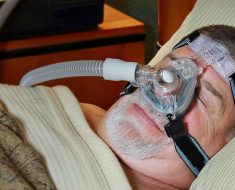
Older people can improve their lifestyle and adopt healthier behaviors with the support of an online coach. This can help reduce their risk of cardiovascular disease and dementia. An international group of researchers, led by the Amsterdam University Medical Centre in the Netherlands and including the Clinical Research Center, Institute of Clinical Medicine, Neurology, at the University of Eastern Finland (UEF), has reported these findings today in The Lancet Digital Health.
2724 people aged 65 or more with an increased risk of cardiovascular disease and dementia took part in the ‘Healthy Aging Through Internet Counselling in the Elderly’ (HATICE) project. Participants were recruited in Netherlands, Finland, and France. Half of the participants, the intervention group, were in contact with a lifestyle coach through the Internet and could set goals to improve their health, as well as monitor their own progress towards a healthier lifestyle on a website developed specifically for this purpose. The main focus was put on improving blood pressure, physical inactivity, overweight, smoking and high cholesterol. The other half, the control group, had access to a website providing general health information, but no contact with a coach.
During the 18-month intervention, 90% of the participants in the intervention group set at least one goal related to their lifestyle with the support of their coach. The researchers investigated the effect on a composite measure for cardiovascular disease risk, including blood pressure, body mass index (BMI) and cholesterol. The research shows that the intervention group had a modest, but significant, improvement compared to the control group. This effect was the largest in those participants who were most active on the website: the cardiovascular disease risk score improved for each additional goal set.
“Overall, this was a very positive experience and about 900 people participated in the Finnish part of project, at the UEF-Brain Research Unit,” says Professor Hilkka Soininen, lead investigator of the HATICE project at UEF.
Although these results are promising, the researchers stress that prevention requires a long-term effort. “This is a very interesting multinational prevention study following the successful FINGER trial, which earlier showed that multidomain lifestyle intervention can reduce the risk of cognitive decline. In HATICE we saw that modern technology, as self-management with an online coach, can be a valuable addition to regular health care also in older individuals. This type of intervention should be tested on a larger scale, to confirm whether the beneficial effects seen are sustainable over time and, in the long term, lead to fewer heart attacks, strokes and dementia’,” says Professor Miia Kivipelto, lead investigator of the HATICE project at Karolinska Institutet and Professor of Neurogeriatrics at the Institute of Public Health and Clinical Nutrition, UEF.
Source: Read Full Article





